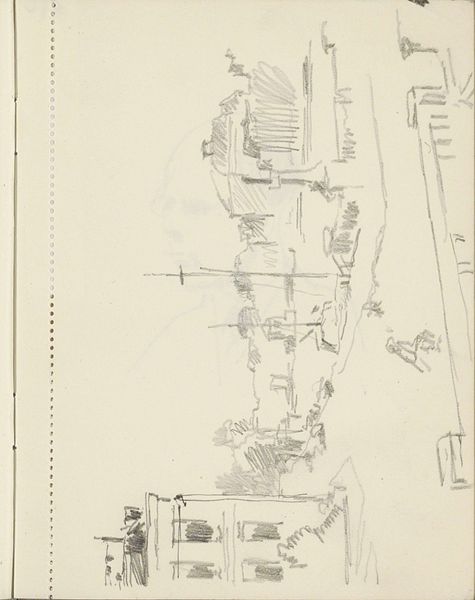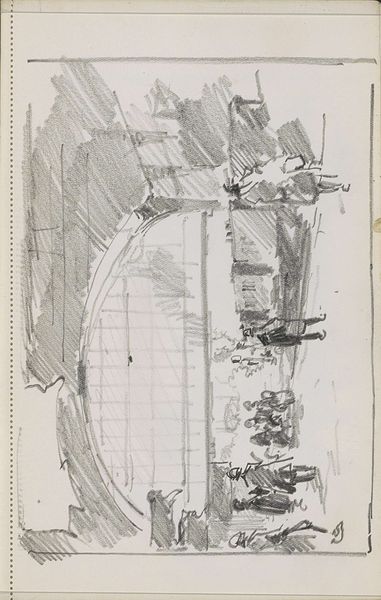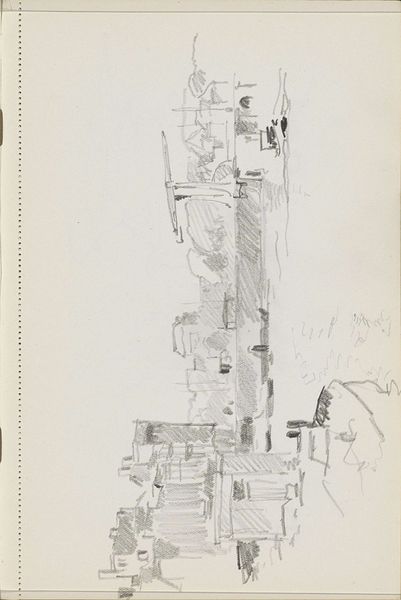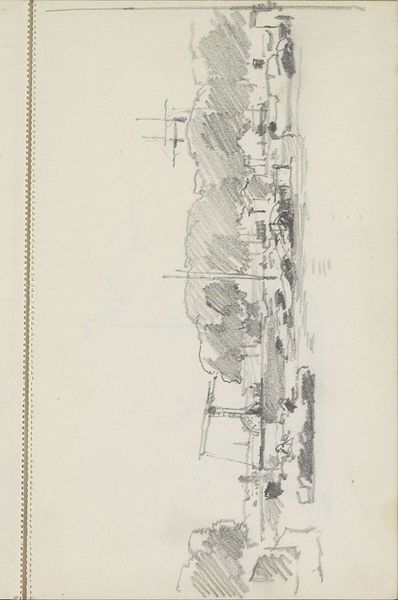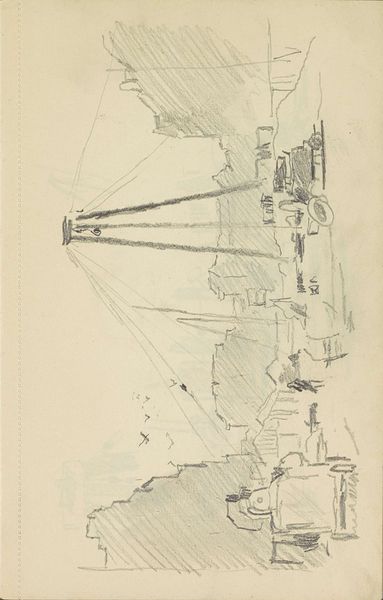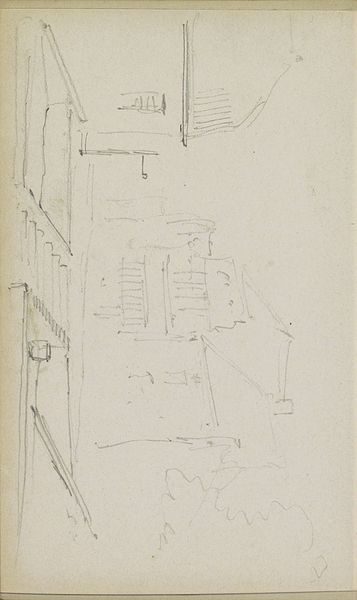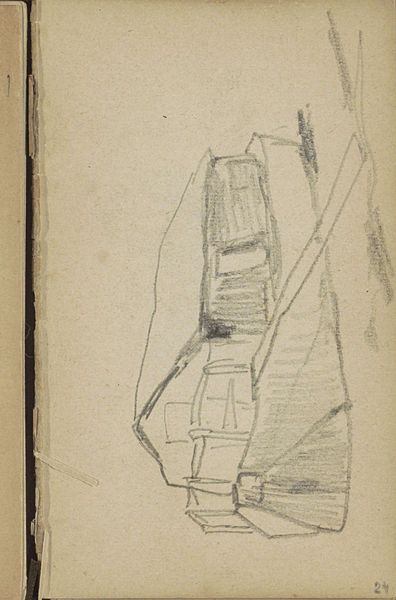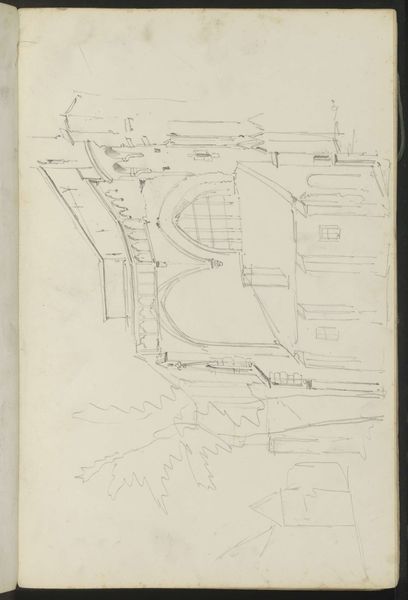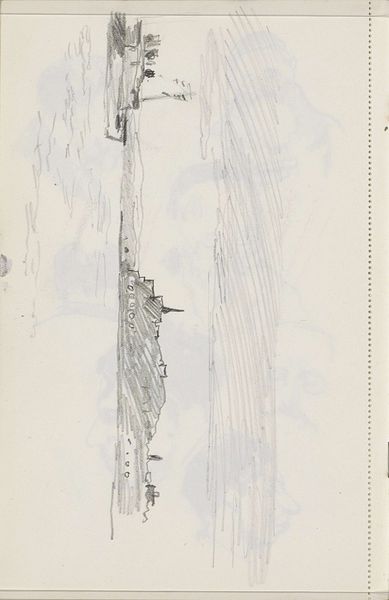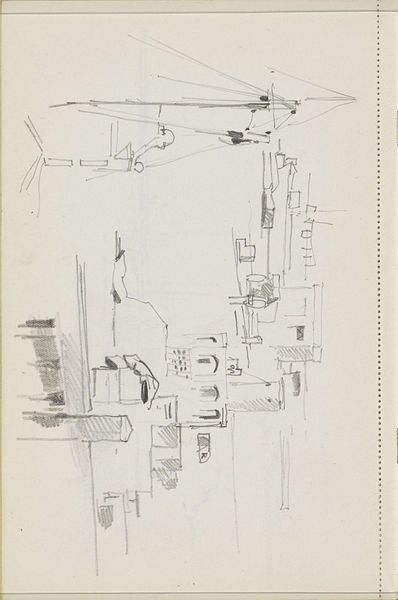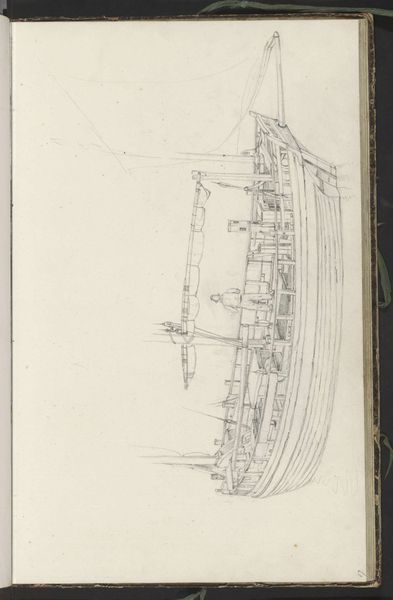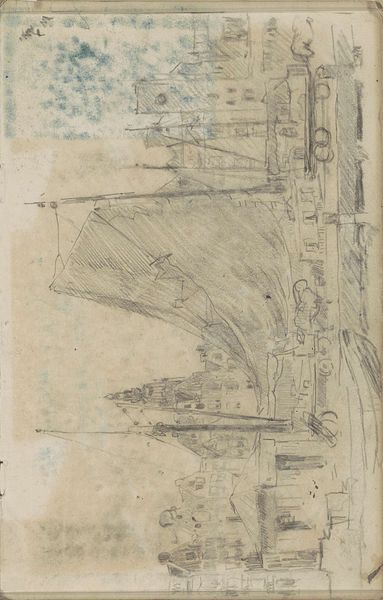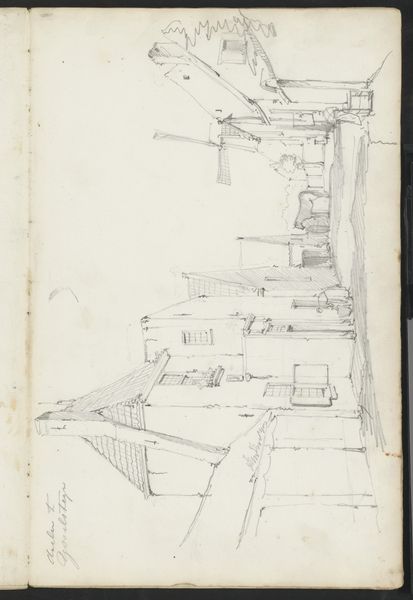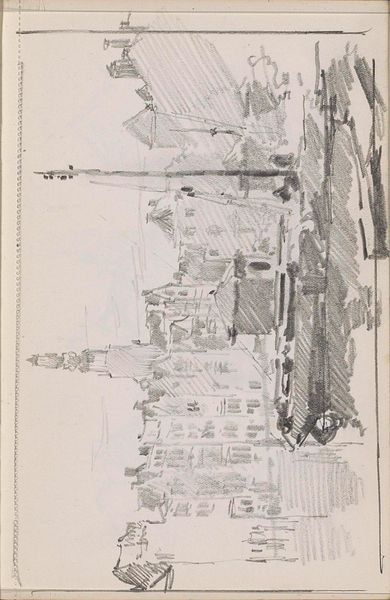
drawing, pencil, architecture
#
drawing
#
geometric
#
pencil
#
architecture drawing
#
architecture
Copyright: Rijks Museum: Open Domain
Curator: This delicate architectural study is titled "Deels overkoepeld treinstation," or "Partially Domed Train Station." It was composed with pencil by Cornelis Vreedenburgh sometime between 1890 and 1946. Editor: The immediate impression I get is of vastness struggling to be contained within a sketch. There's something melancholy about it, too. A monumentality rendered with the soft impermanence of graphite. Curator: It's precisely that contrast I find compelling. A train station, typically a hub of activity, a place of coming and going—depicted with such restrained materiality. Vreedenburgh invites us to consider the labor and resources poured into these monumental civic structures. Pencil, seemingly so humble, yet here it documents a nexus of industrial modernity. Editor: I can almost feel the ghost of steam and the echoes of departures past. Thinking about how many journeys, how much coal, how many human stories were facilitated and consumed by that station...all funneled into it. Does that feel heavy to you too? The pencil itself becomes like a residue of all those vanished efforts. Curator: It makes you wonder about the station's historical significance in its specific context. We know that railways shaped the landscapes of production and commerce during that era, but they also dramatically altered patterns of social life. What new social relations did a building like this allow for? Editor: The perspective lines! The bare scaffolding laid to capture depth – it’s an open invitation, I think, for me to fill in my own narratives and anxieties. It is unfinished. Was it never finished? Am I even *supposed* to complete the job, to add more pencil? That uncertainty just adds another layer of complexity to our sense of scale and loss. Curator: Loss is precisely the right word. As we consider its architecture, and what’s become of the site over time, we realize drawings, sketches, like "Deels overkoepeld treinstation," become critical evidence of social change—capturing fragments of a collective life irrevocably changed. Editor: In a way, it all gets funnelled into the line work again: a memory, a building, all these questions. But maybe a shared question can point us to a deeper, more connective story.
Comments
No comments
Be the first to comment and join the conversation on the ultimate creative platform.
